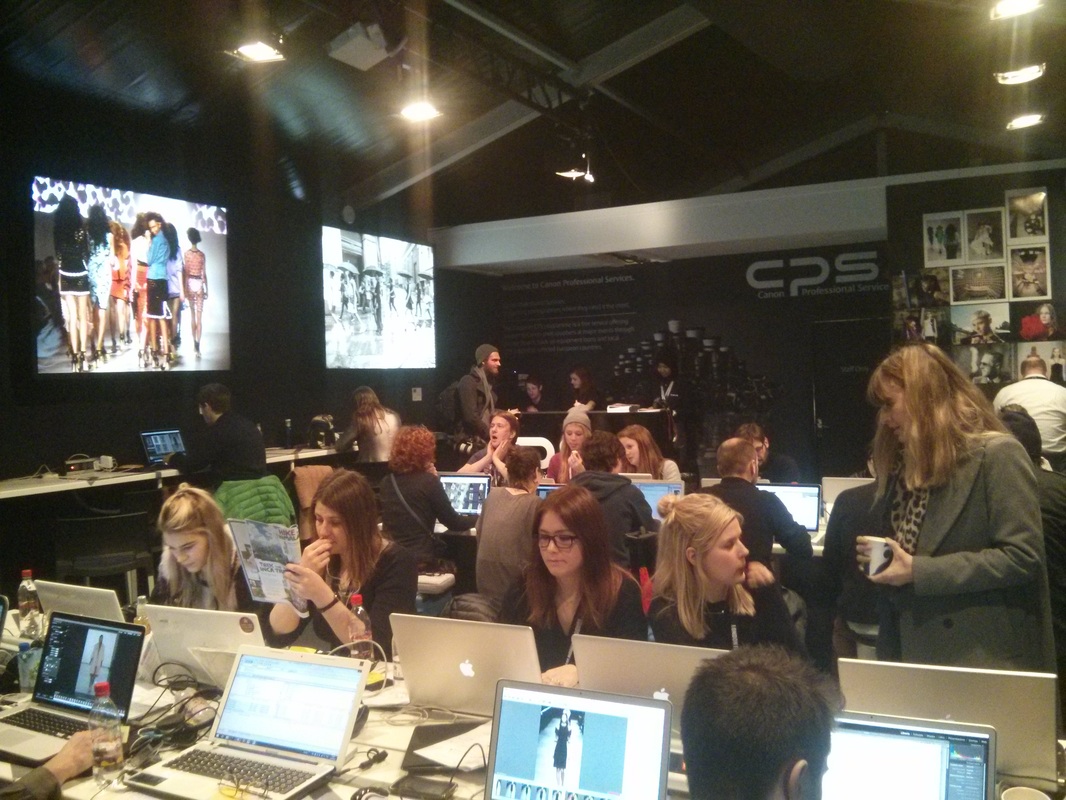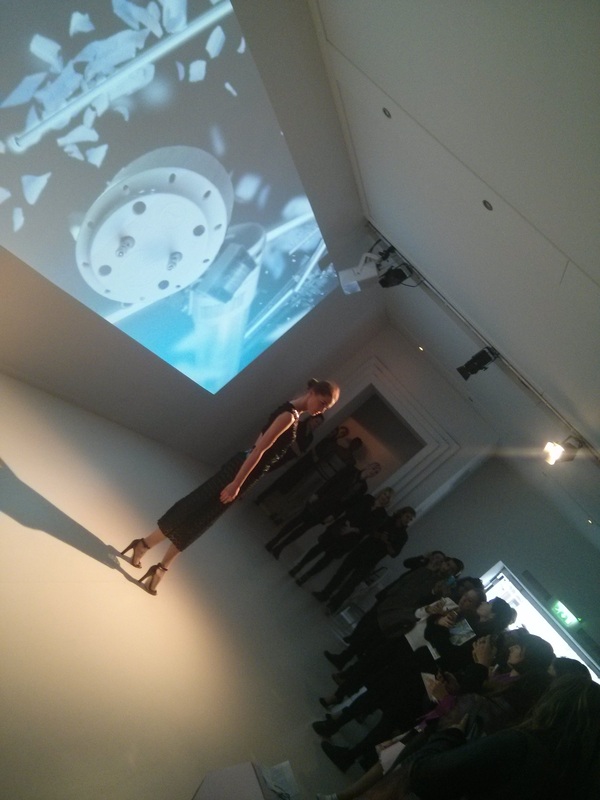|
I'm going to write a book. It won't be a book about technology. It's going to be a book about being a leader or a manager in a technological age and and an exploration of how the realities of the digital world are changing the theory and practice of modern management and leadership. I am not a digital native. I first learned to type at the age of 16 on a manual typewriter inherited from my grandmother graduating from there to golfball and electric typewriters. I remember the first PC and Mac that I used. I remember my first modem as a thing of wonder and I still miss the wonderful sound that signalled you were connecting with a new frontier of knowledge and yet to be explored experiences. I learned to build my first website using HTML for Dummies and I’ve graduated through MP3 Players, Mini-Discs, Ipods, Ipads, iPhones and Android and 3D printing. I’ve been an advocate of open data and a proponent of its value in transparency, accountability and innovation and I’ve had a fair deal of engagement with technologists and developers at the cutting edge of the digital frontier. And during those years of my own digital adoption and engagement I’ve worked largely in hierarchies, in managerial and leadership positions in the arts, in the media and in government so I’ve experienced first hand the yawning gap that has been steadily opening up between those mangers and leaders who “get it” and those who don’t. Those in the minority who get it understand that technology and the values that underpin the digital mindset have more than kit and products to offer, tantalisingly they offer a way to finally escape the ever present “triangle of despair” of legacy systems, procurement and PRINCE 2. We may have started shaping these systems to support our business needs, to protect ourselves from risk and in an attempt to achieve machine like processing and efficiency. But in the end the triangle of despair has ended up shaping us. Many senior people are bound entirely into the dictates of these systems incapable of innovating or changing even when it is abundantly clear that these systems are no longer fit for purpose. Procurement processes that force organisations and governments to over specify in order to reduce risk will almost certainly result in the acquisition of products or services that are already out of date. Gantt charts intended to create efficiency in project management, setting out step by step approaches to get to a delivery date, force individuals to slavishly follow the boxes missing serendipity and failing to understand that in an age of user need, good beats perfect. Rational approaches to HR management and control are blind to human nature and the needs and desires that drive the digital native and the wider societal forces that are redrawing their commitment to and contracts with their employers. And the reality that most of us have infinitely better technology kit at home then we have in our workplaces means our lives are full of friction at work that encourage us to “workaround” and “hack” if we are to get our jobs done in the most efficient way possible. We are now in the era of zero tolerance for digital failure. Our employees of the future will expect that our internal networks and systems are robust and fast 100% of the time. Anything less and they will expect to work from home where their own networks and connectivity speeds beat yours and they will expect their organisations to trust them to work just as hard at home as they would under your watchful eye.
Companies who want to attract and keep the best talent won’t be able to rely on the value of their global brands if graduates who join are forced to use locked down systems that prevent collaboration both within and without the organisation, or use firewalls that cut these digital natives off from the networks that they have grown up with, broken up with and rely on communicating with 100% of the time, all the time. Future company competitiveness will be a combination of culture, connectivity and speed and the mindset of the digital native will be a powerful force for corporate change. The future belongs to managers and leaders who see themselves not as control pilots but chaos pilots and over the course of my book I hope to explore what might be the most useful tools to have in your cockpit. I'll be exploring leadership theories, the role of MVP in management, the nature of power and influence, the workforce of the future, the value of networks and cognitive outsourcing, rethinking strategy, open data and analytics, growth hackers (vs marketeers) and how you can JFDI since going ugly early is better than sitting around polishing your ideas until you have buffed yourself out of the competition. Now all I need is an interested publisher....if you're out there ping me.....
0 Comments
I’m writing this blog post after several frustrating hours trying to generate some sales pipelines in Ireland for my consultancy DSRPTN. I’d been hoping that we could offer some Digital Leadership Workshops that might be of interest to C Suite leaders in Ireland as well as their senior management teams. We know that digital disruption is challenging for many businesses and governments so I quite liked the idea of doing some work at home over the course of 2014. Compare and contrast how this works in the UK and Ireland. Here in the UK I can look for organisations or individuals who have a social presence that I can start a conversation with. I look for them on Twitter and follow them, find them on Linkedin and either email them directly or send them an InMail. So far so good. I can also find people who are following me who can do direct introductions or recommendations so its a fairly frictionless process. Because I am open and visible companies who are on social and who would like me to talk at an event or hold a workshop can find me easily as was the case when Canon were looking for a panel speaker for this event. The recommendation to use me came from (Tom McLoughlan in Accenture) who connected me with (Bob Pickles Head of Public Affairs at Canon) and through that panel I met (Chi Onwurah Shadow Minister for Cabinet Office) so all in all great for me and I hope useful for them. Plus even better I subsequently got to visit London Fashion Week at Bobs invitation (Canon are a sponsor) and got a once in a lifetime chance to see inside the photographers area and some great clothes (I'm not shallow at all really). Things don’t seem to work quite this way in Ireland. Senior leaders who I need to connect with don’t seem to be on Twitter. So you search for them on Google and then you get their LinkedIn profiles. But then they neither have contact details or quite often don't have the facility to send InMail either. Which means that if I want to do any kind of pitch or exploration I have to email the info@ email of their organisations which I’m guessing is not going to be seen by the right people or those with the authority to make decisions. This is bad not only for me but for the chances of leveraging innovation into both business and government in Ireland. In order to be open for business, well you need to be open in every sense of the word. You need to understand that by working in such a closed manner you will continue to only know what you currently know and will never open yourself to the kind of serendipity on which innovation relies. You cannot claim to be a cutting edge consultancy or training institution if the cutting edge can’t find you. In the digital age if you are not searchable and clickable and frictionless to connect with how will you possibly keep your competitive advantage? How do you keep abreast of changes in business models if you are not experiencing the change that is happening all the time on the web, on mobile, in digital economies? How can you claim to be at the top of your game if the people who are shaping the futures of tomorrow are all communicating with each other but not with you? My good friend Chris Taggart once said to me “the only thing that matters in business today is how relevant you are and what your standing in the conversation is”. If you are absent from any conversation that I can see then how can I judge either your relevance or your standing? How do I determine if you are a company or leader that I would like to work with and how will you ever know what I have to offer?
Innovation relies heavily on information flows and not just local but global flows. I’ve been fortunate to benefit in ways too numerous to articulate here from the sharing of knowledge and expertise from people I am connected to online all over the world. As an individual, my world view, my knowledge, my expertise has grown exponentially with my participation in the world of social media and that’s just me - think of the benefits to your companies and organisations? Think of the benefit to your workers and managers of being able to connect with industry leaders, thought leaders, academics, competitors and technologists? Just because your workforce may have been severely cut through the years of austerity does not mean that you can’t access some of the brightest brains in the world at the click of a button. I call this cognitive outsourcing. So you can only afford to hire a certain number of analysts or comms people or data scientists to work FOR you but you can connect with thousands who will work WITH you. Collaboration cannot happen in a vacuum and as the old saying goes from Sun Microsystems “No matter who you are, most of the smartest people work for someone else”. So come on senior leaders in Ireland in government and business show visible leadership that proves you are open for business and innovation. Improve your online presence and join the rest of us in the conversation. You never know we might even be able to help - and if you don’t want to hire me - you'll find loads of others just as good and just as willing to start working on the thorny problems of Leading in Disruptive Environments. After all remember we are only a click away. |
Details
Categories
All
Archives
August 2023
|




 RSS Feed
RSS Feed